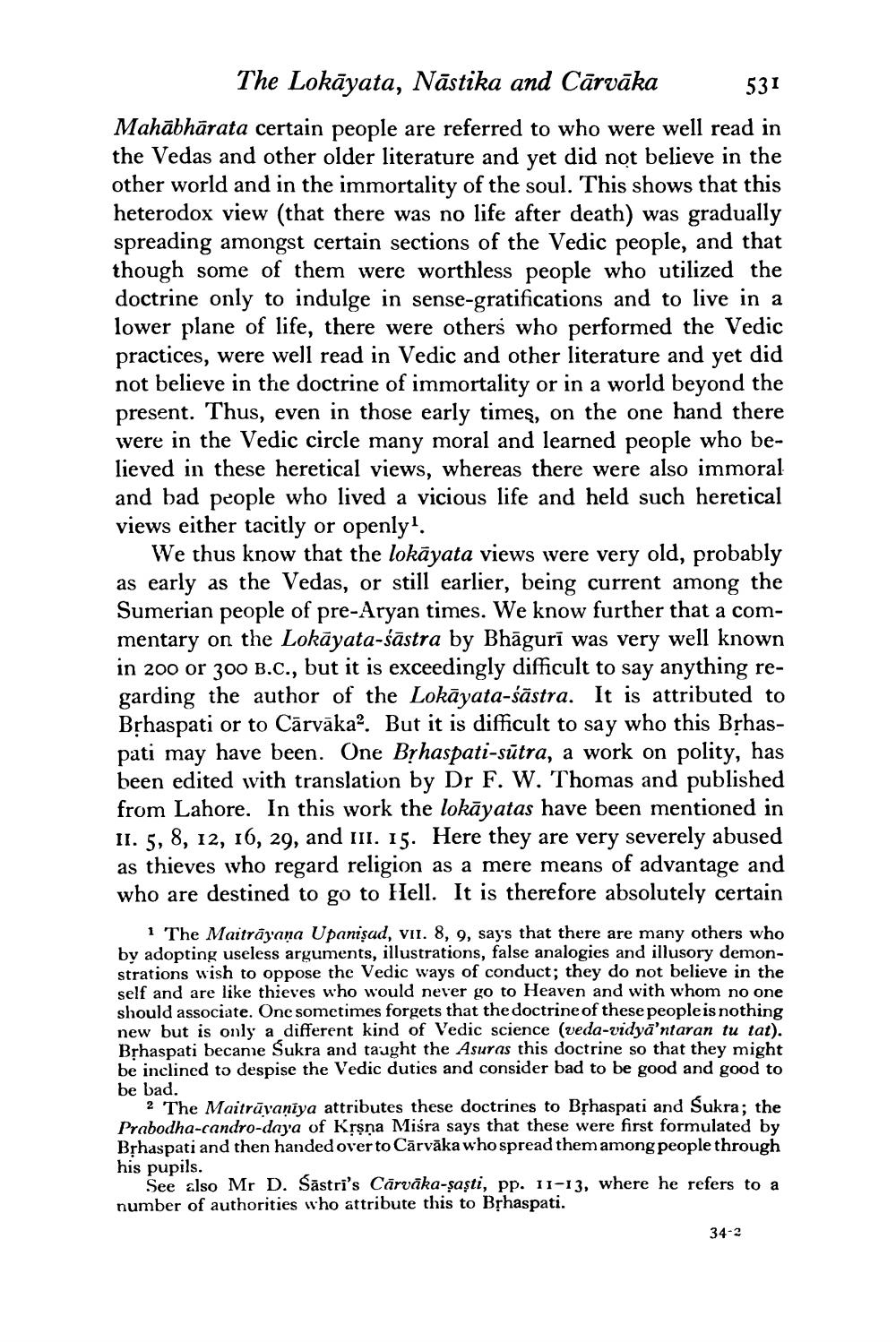________________
The Lokāyata, Nāstika and Cārvāka 531 Mahābhārata certain people are referred to who were well read in the Vedas and other older literature and yet did not believe in the other world and in the immortality of the soul. This shows that this heterodox view (that there was no life after death) was gradually spreading amongst certain sections of the Vedic people, and that though some of them were worthless people who utilized the doctrine only to indulge in sense-gratifications and to live in a lower plane of life, there were others who performed the Vedic practices, were well read in Vedic and other literature and yet did not believe in the doctrine of immortality or in a world beyond the present. Thus, even in those early timeş, on the one hand there were in the Vedic circle many moral and learned people who believed in these heretical views, whereas there were also immoral and bad people who lived a vicious life and held such heretical views either tacitly or openly.
We thus know that the lokāyata views were very old, probably as early as the Vedas, or still earlier, being current among the Sumerian people of pre-Aryan times. We know further that a commentary on the Lokāyata-śāstra by Bhāguri was very well known in 200 or 300 B.C., but it is exceedingly difficult to say anything regarding the author of the Lokāyata-sāstra. It is attributed to Brhaspati or to Cārvāka. But it is difficult to say who this Brhaspati may have been. One Brhaspati-sūtra, a work on polity, has
een edited with translation by Dr F. W. Thomas and published from Lahore. In this work the lokāyatas have been mentioned in II. 5, 8, 12, 16, 29, and II. 15. Here they are very severely abused as thieves who regard religion as a mere means of advantage and who are destined to go to Hell. It is therefore absolutely certain
1 The Maitrāyana Upanişad, vii. 8, 9, says that there are many others who by adopting useless arguments, illustrations, false analogies and illusory demonstrations wish to oppose the Vedic ways of conduct; they do not believe in the self and are like thieves who would never go to Heaven and with whom no one should associate. One sometimes forgets that the doctrine of these people is nothing new but is only a different kind of Vedic science (veda-vidya'ntaran tu tat). Brhaspati became Sukra and taught the Asuras this doctrine so that they might be inclined to despise the Vedic duties and consider bad to be good and good to be bad.
2 The Maitrāvaniya attributes these doctrines to Bșhaspati and Sukra; the Prabodha-candro-daya of Krsna Miśra says that these were first formulated by Brhaspati and then handed over to Cārvāka who spread them among people through his pupils.
See also Mr D. Šāstri's Cārvāka-șaști, pp. 11-13, where he refers to a number of authorities who attribute this to Brhaspati.
34-2




